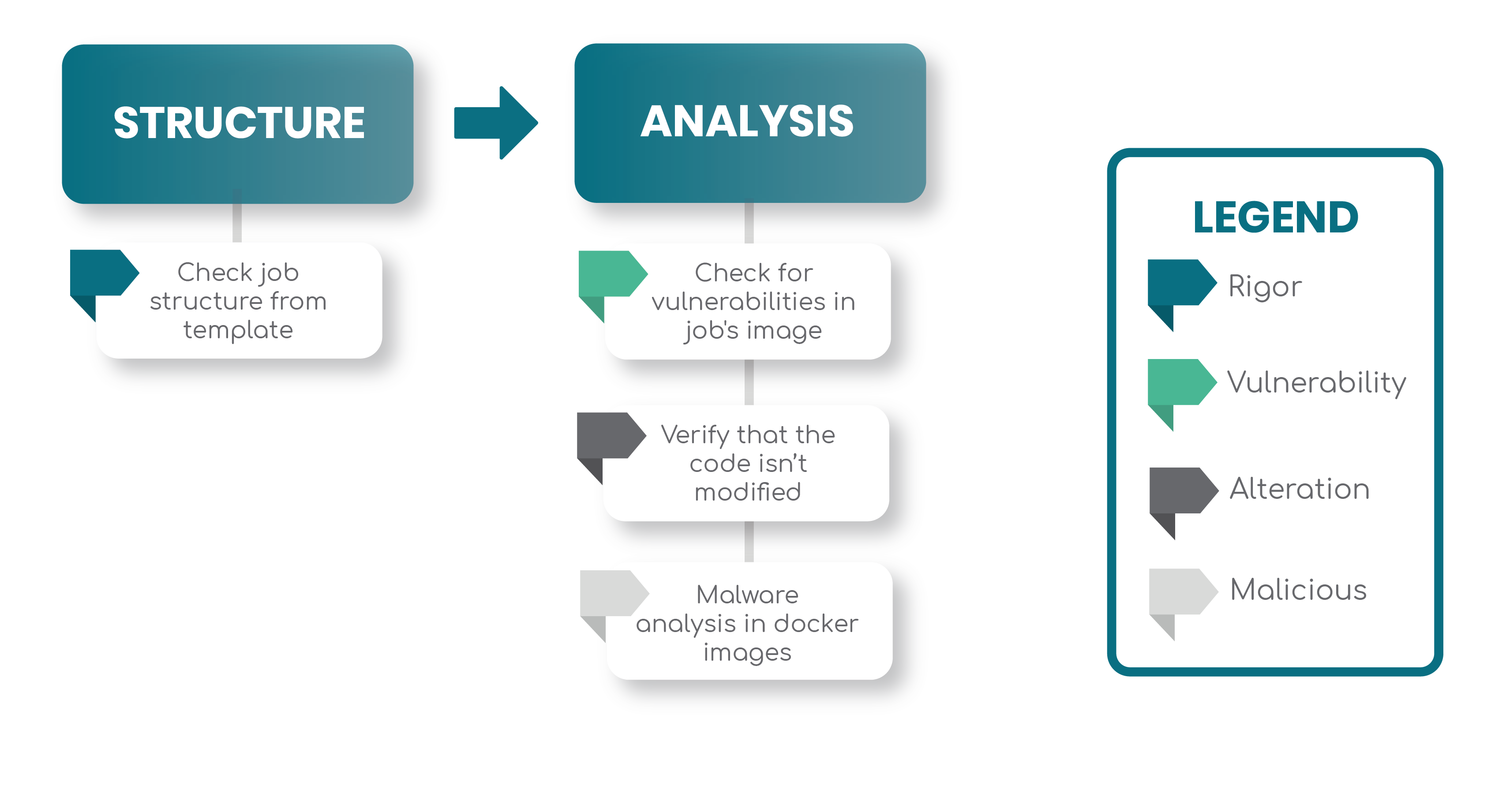FAQ
Here you'll find the answer to your questions! If the question you are looking for isn't on the FAQ, you can contact our support or open a ticket to add it 👇🏻
R2Devops platform
Organizations & private resources
We get your organizations directly from GitLab, so all you have to do is create a new organization in GitLab!
To add a new organization in GitLab, follow this tutorial!
A private template is sourced from a private repository on GitLab scoped to your current organization, where are securely store all the organization CI/CD resources.
Like on GitLab, only members of the repository where the template is sourced can access it!
Other
You can take a look to the roadmap to see the next feature we will develop!
The library of open source templates (the SaaS Marketplace) will always be available without license, and will stay free!
R2Devops Hub
Use a template
Details
When templates have the label "Official", it means they respect standards of quality and safety defined by R2Devops' team. Regarding the quality, we ensure:
- Fixed tag for docker image and any external tool used inside the template, so they don't break the templates if they change.
- Resources with license compatible with the template license, so anyone can use it.
- Artifacts and logs production, in order to facilitate the comprehension of the template's results.
- Simple customization of the templates, thanks to variables.
- The structure of the template is properly defined, in order to build a clear documentation.
Regarding the security, take a look at our CI pipeline:

We described as Plug and Play the templates that don't need configuration in order to work in your pipeline.
It means you can add the include link of the template in your pipeline and directly run it. And it will work ✨
In order to include a template in your pipeline, you need to add the template include project, ref and file in your .gitlab-ci.yml file.
But first, you need to precise the stage in which your template is supposed to work!
Official templates are checked by R2Devops' team and respect certain standard regarding security and quality. Plus, you can be sure those templates won't be deleted from the hub, and that your pipeline won't broke due to a missing content.
They are 2 ways to import a template into R2Devops. You can:
Adding your template into the official R2Devops repository will require more time than linking your template.
Why?
Because our team personally review your template and ensure it fits our safety and quality requirements! Once the first review is done, they'll let you know your work was perfect, and your template is added or if some adjustments are required.
Labels
Blue labels give information about the origin of the templates.
In R2Devops, blue labels look like this:
A template can be added in the hub by someone working for R2Devops or by someone from the community. If you import a template, your template will automatically get the label community. If you contribute following R2Devops guidelines, your template will get the label Official!
If a template carries the "Official" label, it indicates that it meets certain standards for quality and security.

The label Community means that the template was added by someone from the community. We don't know which quality standards this template follow, so we can't ensure it's safety.
Green labels give technical information about a template.
In R2Devops, green labels look like this:
If you can't find the label you want to use, you can open a ticket and ask our team to create a new label!